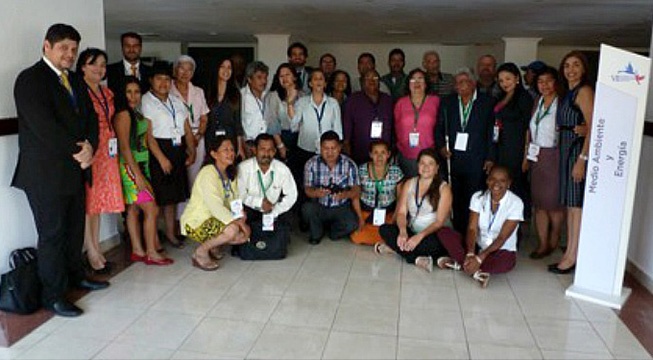Case of Closure of Fundación Pachamama Continues to Draw International Reaction

Former executive director of Fundación Pachamama, Belén Paez Participates in VII Summit of the Americas in Panama
Team Members of the former Pachamama Alliance sister organization in Ecuador, Fundación Pachamama, continue to be invited to speak nationally and internationally about the bigger context of the implications of closing the Fundación Pachamama offices in 2013.
Sarayaku lawyer, Mario Melo participated in a meeting of experts on strategic litigation on Economic, Social and Cultural Rights in Geneva, Switzerland. The meeting was with the International Service for Human Rights, which agreed to do an in-depth story on the subject for an upcoming newsletter that circulates globally. He also attended the session of the Inter-American Commission on Human Rights in Washington, DC in March, where he met with the Executive Secretary of the Commission and discussed the case of Fundación Pachamama.
Former executive director of Fundación Pachamama, Belén Paez, participated in the roundtable of Energy, Sustainable Development and Environment of the Civil Society Forum of the VII Summit of the Americas, held in Panama City, on April 10, 2015. The roundtable affirmed that, in order to achieve a high level of human development, it is necessary to promote environmental sustainability of economic activities and public policies of states. Also, it’s important to align market forces and civil society in seeking the sustainability of life on the planet in their actions.
The roundtable proposed that the governance of the countries should be oriented to the sustainable use of ecosystems and species. They demanded an end to environmental racism and the criminalization of activism coming from states and large companies, especially multinationals, particularly when the most fragile ecosystems and vulnerable populations are defended. The roundtable also recognized that climate change is a major environmental threat to the sustainable development of the Americas. To advance its agenda, the roundtable requires strengthened cooperation activities, education and research on environmental issues from an equity perspective.